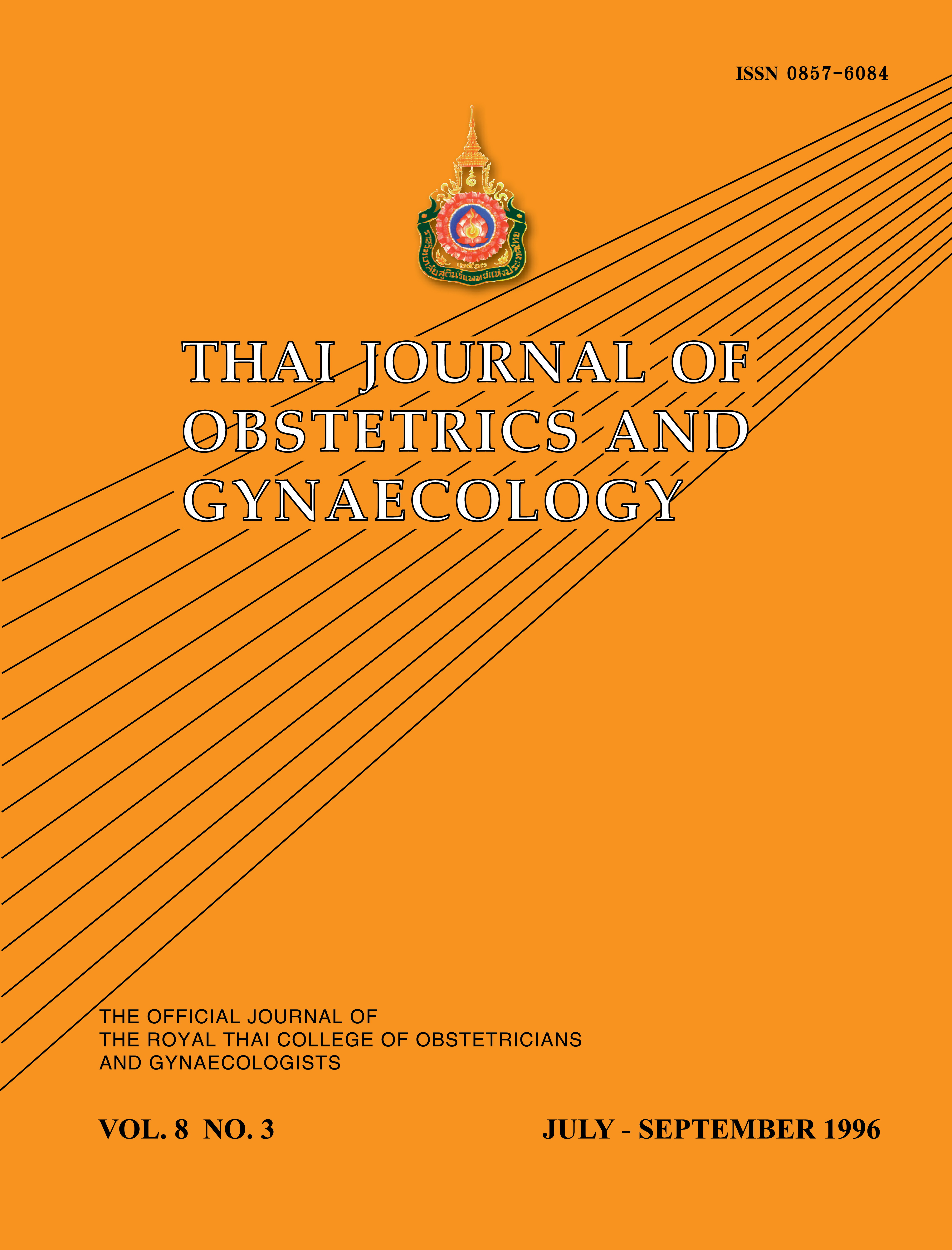Prenatal Diagnosis of Severe Thalassemia Syndrome in Maharaj Nakorn Chiangmai Hospital
Main Article Content
Abstract
Objective To describe prenatal diagnosis programme for prevention and control of severe thalassemia syndrome which was successfully carried out at Maharaj Nakorn Chiangmai Hospital.
Subjects and methods The programme included : 1) screening of pregnant women for thalassemia carriers in order to identify couples at risk of having baby with severe thalassemia syndrome, 2) prenatal diagnosis by serial ultrasonography or fetal blood sampling under ultrasound-guided cordocentesis in risk couples, 3) analysis of fetal blood under HPLC (High Performance Liquid Chromatography) or haemo globin electrophoresis, 4) genetic counseling of couples with affected fetus and discontinuing pregnancy.
Results From 13th September 1994 to 1st August 1995, 3,310 pregnant women were screened for carriers of important thalassemia by EOFT (Erythrocyte Osmotic Fragility Test) and 1,000 cases (30.2%) gave abnormal results. Among them 115 couples were at risk, 87 of them obtained prenatal diagnosis and 19 of 87 fetuses were severe thalassemia syndrome and were terminated.
Conclusion Prenatal diagnosis programme for thalassemia is an obstetric role in prevention and control of the disease.
Article Details

This work is licensed under a Creative Commons Attribution-NonCommercial-NoDerivatives 4.0 International License.


